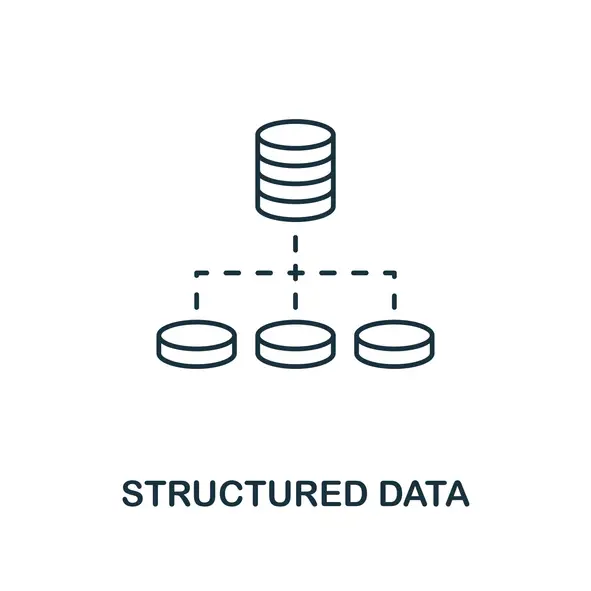
In today’s digital landscape, having a well-optimized website is crucial to stand out from the competition and improve your search rankings. Imagine your website as a high-speed train racing through the internet tracks. Technical SEO is the finely tuned engine that keeps it on course. Technical SEO plays a vital role in enhancing your website’s performance and visibility on search engines like Google. Let’s break down the jargon, shall we? Technical SEO is like the backstage crew at a theater. They make sure everything runs smoothly behind the scenes, so the show can go on without a hitch. It’s the unsung hero that fine-tunes your website’s engine for optimal performance.
To ensure your website runs smoothly, we perform Technical SEO Audit to identify areas of improvement. Think of a technical SEO audit as your website’s thorough medical check-up. Just like a doctor looks for hidden issues, a technical SEO audit uncovers those sneaky problems that might be affecting your site’s performance. It’s like sending in a detective to unveil any hidden mysteries your website might be harboring. A technical SEO checklist is like a packing list for your website’s journey to the top of search engine rankings. It ensures you have everything you need for a successful trip.
In this complete guide, we’ll provide you with a detailed technical seo checklist to optimize your website’s technical aspects and surpass the top-ranking articles of your Niche.
Detailed Technical SEO Checklist:
1. Website Speed Optimization
You know how it feels when you open a website, and it takes forever to load? It’s like waiting in a never-ending line at the grocery store – frustrating! We all want instant access to information. That’s where Website Speed Optimization comes in. It’s not just about impressing search engines; it’s about making your website a joyride for visitors.
Website speed is a critical factor that affects both user experience and search rankings. A fast-loading website not only keeps your visitors engaged but also impresses search engines. Consider implementing the following techniques to boost your website’s speed:
- Image Optimization:Images add charm and charisma to your content, but if they’re overweight, they’ll slow down your website like a sumo wrestler in a marathon. Tools like TinyPNG and ImageOptim act as your personal trainers for these images, helping them shed those extra kilobytes while maintaining their good looks. It is always recommended to compress large sized images and then upload them to website or use a plugin like Smush to compress images on live website.
- Content Delivery Network (CDN):Think of your website as a global party, and a Content Delivery Network (CDN) as your way to ensure everyone gets to the fun on time. CDN spreads your website’s content across the globe, so no matter where your visitors are, they experience the thrill of fast-loading pages.
Leverage a Content Delivery Network to distribute your website’s static content across multiple servers worldwide. This ensures that users experience faster loading times regardless of their location.

2. Mobile Responsiveness
In today’s world, we’re all attached to our mobile devices. It’s like they’re an extension of our hands. So, having a website that works seamlessly on all screens is not a choice anymore; it’s a necessity. Responsive design is your website’s chameleon mode. It automatically adapts to fit different screen sizes, ensuring your content looks fantastic no matter the device. And don’t forget to take the Google Mobile-Friendly Test to make sure you’re on the right track. You want your website to be as adaptable as a superhero costume.
Google prioritizes mobile-friendly websites in its rankings. Ensure your site meets the mobile friendly test criteria’s.
3. Secure Your Website with HTTPS
Picture this: your website is a safe vault, and HTTPS is the fortified steel door that guards your users’ precious data. In an age where data breaches are as common as a morning coffee, website security is non-negotiable. Not only do search engines prefer HTTPS, but it’s also a ranking factor now.
Website security is vital for user trust and SEO rankings. Secure your website with HTTPS to encrypt data and protect user information. It’s not just about SEO anymore; it’s about building trust and safeguarding your users.
4. Create an XML Sitemap
Your website’s structure is like a complex maze, and search engines are the explorers trying to navigate it. An XML sitemap is the treasure map that makes their journey easier. Make sure it’s up-to-date and includes all your important pages, so those search engine bots can find their way. An XML sitemap helps search engines understand the structure of your website and index your pages more efficiently.
5. Fix Broken Links
Broken links are the equivalent of trapdoors in a grand mansion. You don’t want your visitors falling through them, do you? Broken links can negatively impact user experience and SEO. Regularly audit your website for broken links and fix them promptly. Use tools like Screaming Frog or Ahrefs to identify broken links. A well-maintained website ensures your users stay on the right path.
6. Implement Structured Data Markup
Structured data, often referred to as schema markup, is the secret ingredient that adds flavor to your website’s SEO recipe. It’s like the chef’s special spice blend that provides search engines with crucial context about your content. So, what is structured data, you may wonder? Think of it as your website’s unique language that speaks directly to search engines, making it easier for them to understand your content’s nuances.
Using a structured data testing tool ensures that this secret sauce is perfectly integrated into your website. It’s like having a culinary critic taste your dish before serving it to ensure the flavors are just right.
Similarly, a rich snippet testing tool acts as your online taste tester, guaranteeing that your structured data creates delectable search results, enticing users with the perfect online dish.
In the world of SEO, structured data and schema markup are your secret recipes for online success, turning your website into a culinary masterpiece for search engines and users alike.

7. Optimize Robots.txt File
Think of your website as a vast library, and the robots.txt file is like the librarian’s guide, telling search engine crawlers which shelves they can explore and which ones are off-limits.
The robots.txt file instructs search engine crawlers on which pages to crawl and which ones to avoid. Ensure your robots.txt file is optimized to guide crawlers efficiently.
8. Use Canonical Tags
Imagine having multiple versions of a classic book with slight variations. Canonical tags are like the author’s signature, specifying the definitive edition. When you have similar content across different pages, these tags tell search engines which one is the primary version, preventing confusion and ensuring the right one is presented to users.
Canonical tags help prevent duplicate content issues by specifying the preferred version of a page. Use canonical tags to indicate the primary URL when you have similar content across multiple pages.
9. Enable Breadcrumbs
Breadcrumbs aren’t just for fairy tales; they’re for your website, too! They’re like the friendly trail of breadcrumbs in the forest, guiding your users on their journey. Implementing breadcrumbs enhances navigation, helping users understand their location within your site’s hierarchy. It’s like a virtual compass for your website’s wilderness.
In other words, Breadcrumbs enhance website navigation and help users understand their location within your site’s hierarchy. Implement breadcrumbs to improve user experience and search visibility.
10. Conduct Regular Website Audits
Regular website audits are like health check-ups for your website. They help you spot and fix any technical issues before they become big problems. It’s like catching a small leak before it turns into a flood. Periodically conduct comprehensive website audits to identify and fix any technical issues that might impact your search rankings. Regular audits ensure your website remains optimized and up to date.
Why AJTechDigital Excels in Technical SEO Audit
At AJTechDigital, we take pride in our expertise and dedication to staying ahead in the realm of Technical SEO. Our team of seo professionals has a keen eye for detail and ensures that every aspect of your website is finely tuned for optimal performance. We are the top local seo company who understand the nuances of search engine algorithms and leverage that knowledge to push your website to the top.
Claim Your Free Website Audit Today!
Curious to know how your website fares in the world of Technical SEO? Claim your free website audit now and discover how AJTechDigital can help you unlock your website’s true potential. Contact us for seo consulting today!
Disclaimer: The information provided in this article is for educational purposes only. Implementing these recommendations should be done with careful consideration and may require technical expertise. Always consult with a professional SEO agency for personalized advice.
